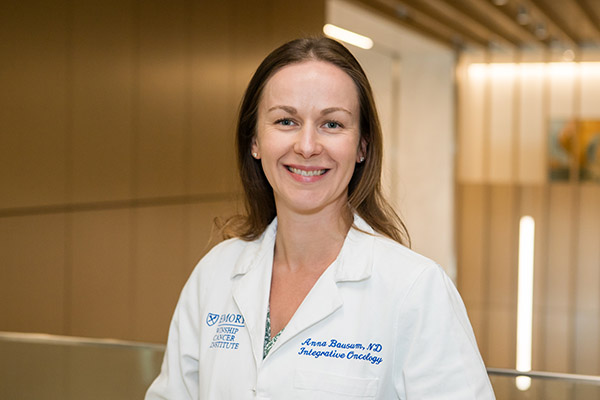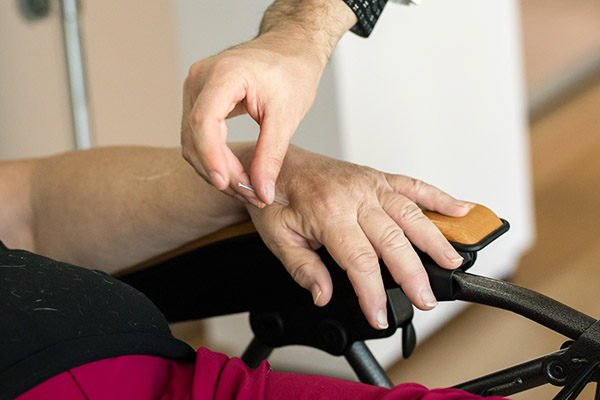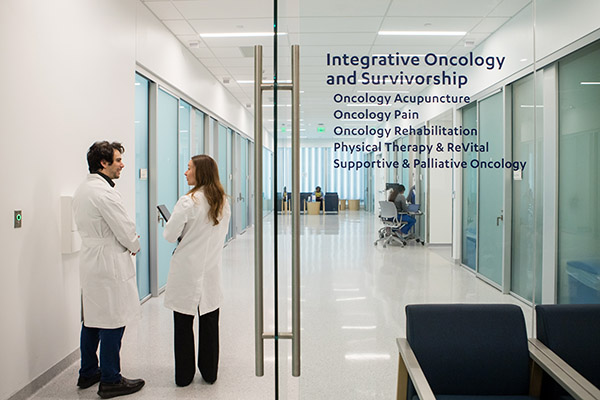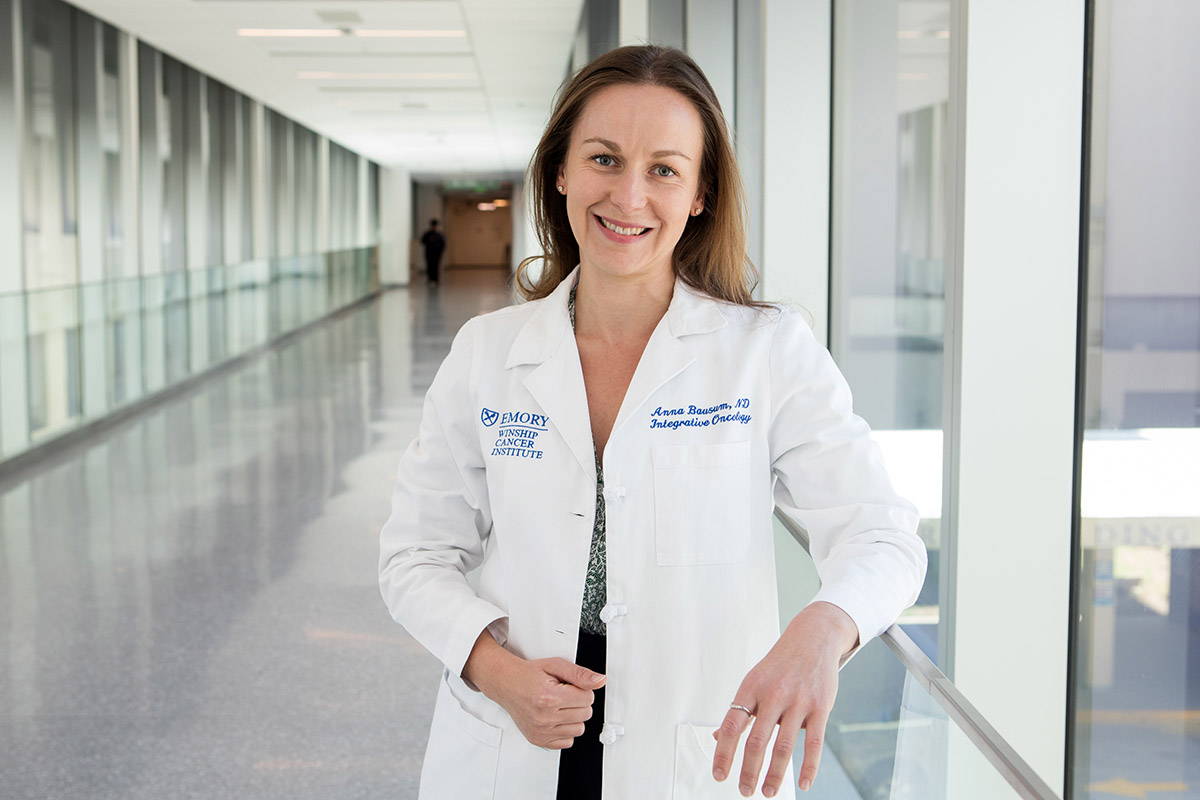Hearing people come back and say they now are able to walk, talk, go to work, perform their chores at home more effectively — that’s what gives me hope.

Anna Bausum, ND, FABNO
Anna Bausum, ND, FABNO, an integrative oncology specialist, is passionate about supporting Winship patients with what she calls “the extra things patients can engage in to help themselves, their health, quality of life or addressing symptoms and side effects.”
As a naturopathic physician, Bausum offers patients complementary therapies as part of Winship’s Integrative Oncology and Survivorship Program. She says integrative oncology is a “quickly evolving field of research and interest” on the academic side and for patients. “Patients are asking, ‘Hey, doc, what else can I do?’ Not as an alternative or in lieu of their standard of care therapies, but to actively participate and engage in feeling better, in recovering from cancer-directed therapies or for relief from long-standing side effects.”
Offering complementary therapies

Winship acupuncturist inserts needle into a patient's hand.
Complementary therapies don’t use medications but may include such things as advising lifestyle or risk modifications, palliative supportive care, providing guidance on using supplements, acupuncture and acupressure. Bausum says that acutherapy — the therapeutic application of acupuncture and acupressure — “provides patients with a very safe and potentially very impactful benefit to symptoms and side effects.” She says that some of the strongest data supporting acutherapy show its benefits for treating fatigue and peripheral neuropathy, as well as dry mouth and insomnia.
Bausum says Winship’s Integrative Oncology program offers acutherapy in a group setting. “This means that more patients can be seen in any one given block of time, and patients can see other people and hear the reflections of improved symptoms in the room or feel the energy of how people have benefitted to date.” She adds, “The patients we see are very eager to understand how they can learn something new and be empowered about what they learned in an evidence-informed way in order to put their best foot forward, both for cancer reducing symptoms and to help improve their quality of life.”
Who’s eligible?

Integrative oncology clinic at Winship at Emory Midtown
All patients who receive care at Winship are eligible to be seen in the Integrative Oncology and Survivorship Program. Bausum says the program’s current patients comprise over 50% survivorship patients “who have wrapped up all their standard of care therapies and have no evidence of disease on scans.” This is in addition to about 47% of patients actively receiving systemic chemotherapy, radiation or going into recovery from surgery “and the entire range of symptoms and side effects that may bring.”
Despite the high number of patients undergoing treatment for their cancer interested in acutherapy, Bausum encourages them not to overextend themselves. “This is something that should help with stress instead of being an additional stressor,” she says. “So we strive to coordinate with other appointments that may bring a patient to the locations where these services operate.”
Potentially profound benefits for patients
The benefits for patients can be profound. Bausum recounts the story of one of the program’s first patients, a man in his sixties who had received treatment for his head and neck-related cancer. Even two years after his therapies had concluded, he came to the program with delayed wound healing in his feet, in a wheelchair, unable to walk, his neck swollen to the point he was not able to effectively open his mouth, eat regular food or even move his neck much at all. He was largely dependent on his wife and other family members to do even basic activities of daily living such as washing or transferring out of the wheelchair into his bed or a different chair.
After 12 sessions of acutherapy alone, Bausum says, “He walked in on a walker telling us he was able to talk to his family in Pakistan better over the phone and they were able to understand him. He could eat more of the foods his wife cooked as part of their traditional fare at home—and was tremendously grateful. By all means, his quality of life went from being dependent now to having driven himself there that day and walked into the clinic for his 12th acutherapy appointment.”
Bausum says that Winship’s commitment to supporting patients’ long-term health and quality of life after cancer is why she is “proud to be part of the Winship Cancer Institute team.” She is motivated by making integrative oncology and acutherapy more accessible and helping the field to expand not only here at Winship, in the Atlanta or Georgia area, but nationally.
“Where science becomes hope,” Bausum says, “for me means bringing patients something that hasn’t been done in other places, that is very thoughtfully delivered and executed and packaged to help improve not only cancer outcomes, but how someone feels in a way that gives them the best of science that we can offer them to date.” She adds, “Hearing people come back and say they now are able to walk, talk, go to work, perform their chores at home more effectively—that’s what gives me hope.”
Winship is where science becomes hope.
Who have you observed inspiring hope in our patients, our team or our community? We would love to hear from you. If you have a story to share about someone inspiring hope at Winship, reach out to us using this form.

